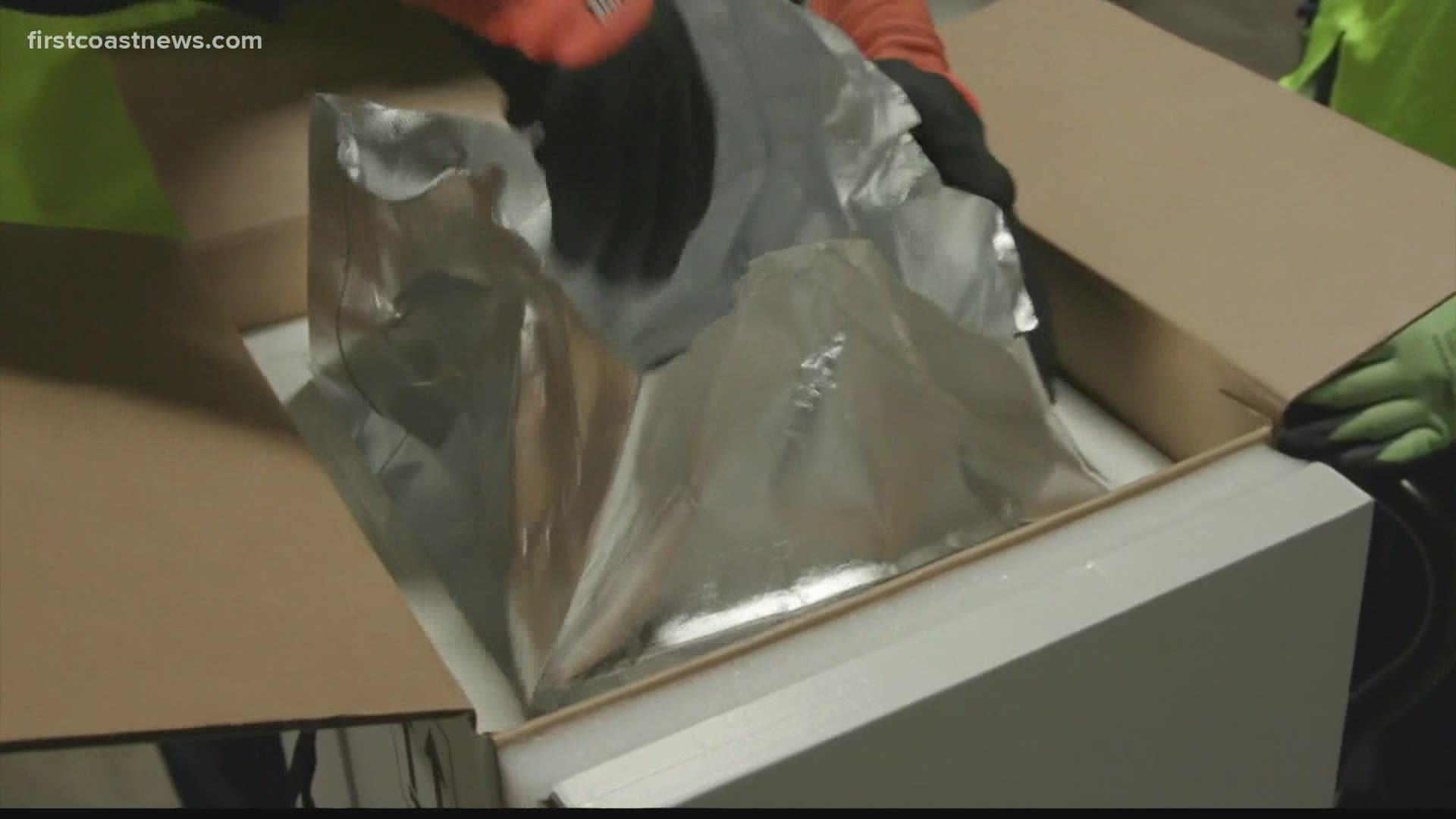JACKSONVILLE, Fla. — The FDA publishing data saying their COVID-19 vaccine is safe and effective, which is good news to many on the First Coast including doctors.
They are excited—but say masks and social distancing must continue until widespread distribution is available.
The CDC says that any authorized vaccine should go to healthcare workers and residents of long-term care facilities first.
But some local researchers are curious who else will be prioritized before a vaccine is available to the public.
“The sense is the FDA feels very positive about the results about the Pfizer vaccine study,” Dr. Michael Koren, chief investigator at the Jacksonville Center for Clinical Research said.
Koren says he’s seen tremendous results in both the Pfizer and Moderna vaccine studies in Jacksonville.
He is curious to see how the FDA will determine who gets the vaccine first.
“Which healthcare workers are highest priority, do first responders such as police and firefighters get priority over other people,” Dr. Koren said.
Data from the FDA showing Pfizer’s vaccine is 95% effective after two doses, which would be given three weeks apart.
Dr. Mobeen Rathore, Chief of Infectious Diseases at UF Health says it’s important to take both doses.
Although fever, headaches and muscle aches can occur, he says that’s not necessarily a bad thing.
“That's your body reacting to the vaccine and producing those good antibodies to protect you. So I think we need to be aware that that is going to happen,” Dr. Rathore said.
Rathore says the only time you shouldn’t get it is during an active COVID-19 infection.
Dr. Koren says they are not seeing people hospitalized from the vaccine.
A vaccine which could provide some needed relief—and a possible end to the pandemic.
“Between better compliance with some of the hygienic measures we all know about and the vaccine being distributed, I think we can see a relatively rapid drop of cases toward the end of winter,” Dr. Koren said.
Dr. Rathore says whether you’ve had COVID-19 or not in the past—he recommends getting the vaccine.
“We don't know for how long one is protected against infection once you've had COVID. So I think that's why if you are in an individual group, you should still get the vaccine,” Dr. Rathore said.
He anticipates it could become part of a normal immunization schedule, but is unsure how long protection from COVID-19 could last.
The FDA data table says monitoring patients after getting the vaccine could take as long as two years.

